Winter weather can be very hard on delicate mature skin. Cold dry weather, wind, harsh sun, and hot dry indoor air with dust or other irritants can cause skin damage that may not be reversible. Seniors have particularly delicate skin, because as they age seniors lose a lot of the elasticity and plumpness that younger healthy skin has. That’s why seniors need to be vigilant about protecting their skin during the winter.
It can be helpful for seniors to have personal care at home during the winter. With personal care at home seniors will have help doing things like showering, applying good moisturizers after a shower or bath, and applying sun protection every day. Some easy things that seniors should do to protect their skin from damage this winter are:
Make Hydration a Priority
Staying well-hydrated is crucial for maintaining skin health. Hydrated skin starts on the inside, so seniors should be drinking at least eight glasses of water everyday to stay hydrated. But seniors can also use a humidifier indoors, wear a hydrating moisturizer at night, and use face masks to hydrate their skin during the winter.
Choose The Right Moisturizer
Using a good-quality moisturizer is essential during the winter months. Seniors should choose a moisturizer that is designed for their specific skin type, whether it’s normal, dry, or sensitive. It’s a good idea to apply moisturizer immediately after bathing or showering, as this helps lock in moisture. Seniors should also be using a moisturizer with SPF during the day. It’s a good idea to ask a dermatologist to recommend a good winter skin care product to be sure it’s a moisturizer that is right for your skin.
Use Gentle Cleansers
Harsh soaps can strip the skin of its natural oils, leading to dryness and irritation. Seniors should opt for mild, fragrance-free cleansers that won’t exacerbate dryness or skin sensitivity.
Humidify Indoor Air
Cold weather often means indoor heating, which can significantly reduce the humidity levels inside a home. Using a humidifier can add moisture to the air, preventing the skin from becoming overly dry and preventing irritation.
Dress in Layers
Layering clothing during cold weather helps maintain body temperature without relying solely on heavy, woolen fabrics that can cause irritation. Soft, breathable fabrics such as cotton are recommended, and wearing a moisture-wicking base layer can help keep the skin dry.
Protect from Sun Exposure
It’s a common misconception that sunscreen is only necessary during the summer. Harmful UV rays are present year-round, and they can reflect off snow, further increasing the risk of sun damage. Seniors should apply a broad-spectrum sunscreen with at least SPF 30 to exposed skin when heading outside, even on cloudy days.
Cover Extremities
Hands, feet, and the face are often exposed to harsh weather conditions. Seniors should protect these areas by wearing gloves, warm socks, and a hat to keep them warm and shielded from the cold wind. It’s also a good idea to put hand warmers in gloves and foot warmers in boots to make sure your hands and feet stay warm and have good circulation.
Avoid Hot Showers
While a hot shower might be tempting in cold weather, it can actually contribute to dry skin. Seniors should use lukewarm water and limit their time in the shower to prevent excessive moisture loss.
Use Lip Balm
Chapped lips are a common issue in cold weather. Seniors should apply a good-quality, moisturizing lip balm to keep their lips soft and supple. Look for products with ingredients like beeswax, shea butter, or coconut oil.
Maintain a Healthy Diet
A well-balanced diet rich in vitamins and antioxidants can help nourish the skin from the inside. Seniors should include foods high in omega-3 fatty acids, like salmon and walnuts, as well as plenty of fruits and vegetables to support overall skin health.
Don’t Overdo The Caffeine
While a warm cup of tea or coffee can be comforting during the winter, excessive consumption of caffeine can dehydrate the body, potentially leading to drier skin. Seniors should aim for a balance and ensure they’re drinking enough water alongside these beverages. Herbal teas are a wonderfully soothing hot drink, or seniors can try sipping some bone broth instead of coffee. Bone broth has collagen that can improve skin’s texture and elasticity.
Get Regular Skin Checkups
Seniors should continue to have regular skin checkups with a dermatologist. This is especially important if they have pre-existing skin conditions or a history of skin cancer.


